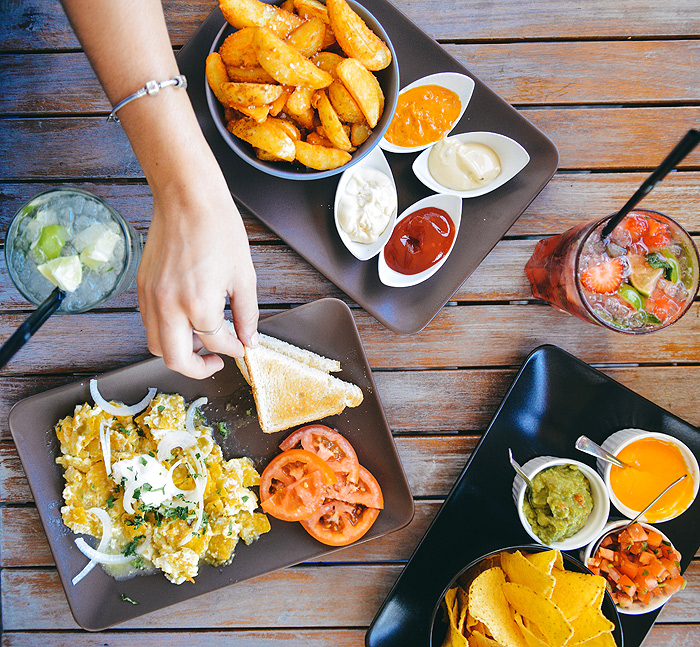The off season is a time for relaxing and taking a break from the stress of the main competitive sporting season. Take advantage of this time, but still be careful not to ‘blow out’ as it will then be more difficult to get back into shape for the next season.
 so many options of what to eat
so many options of what to eat Aims and Goals
If body weight is a concern, try to maintain the levels you achived during the season, or to get into better shape when you return to the club for pre-season training.
Muscle mass should be maintained, or increased for the younger guys who are aiming to gain weight for the next season. This is a good time to effectively increase lean body mass, while training and games are not taxing the energy intake.
Matching Energy Intake with Energy Expenditure
With the reduction in energy expenditure (less training) there needs to be a reduction in energy intake (energy from food eaten), or body fat storage will increase. You may experience a reduction in hunger and appetite, which will make it easier to reduce your energy intake. If you experience no appetite changes you will need to work harder at this. Reducing energy intake is effected mostly by reducing fat in food, and reducing total food intake.
There are two simplistic strategies to reducing food intake.
- Reduce the size of your main meals, and continue to have small snacks
- Eat the same size meals and remove all snacking
No 1 option is recommended as you still have some base training and fitness work to complete, and small snacks will still be important for preparation and recovery from these.
More Restaurants and Eating out
You may be inclined to eat out more, since you have more time on your hands, and now is the best time to get your fix. However, it is still important to choose carefully at restaurants to avoid any large changes in body composition during the off-season.
The basic rules apply;
- Avoid too many high fat foods like takeaways (KFC etc), deep fried foods (spring rolls), very oily dishes (creamy pasta, coconut milk curries)
- Aim to get some vegetables or salad with the meal
- Avoid excess high calorie food and drinks with meals like chips and soft drinks
REMEMBER: It is not as easy to burn off these extra kilojoules when you are not training as hard as pre-season and during the season.
Traveling or Holidays
If you are going away, it is often difficult to keep your eating in order. Overseas travel will inevitably be more difficult than holidays around home.
Tips for local travel;
- Be aware of eating out much more often
- Take food with you for long car journeys to avoid eating too much junk food
- Aim to stay well hydrated, especially on plane journey’s
Tips for long distance travel;
- Prepare yourself by knowing the type of food eaten in the country of destination
- Be wary of food and water hygiene; only drink bottled water in developing nations, eat only food that is very hot or cooked in front of you, or very cold kept in the fridge
- If you are a fussy eater, it may pay to take some food supplies with you
Alcohol
Now is the time to relax and take in a few more alcoholic drinks than normal, if that is what you want. But beware of some of the side effects of too much alcohol during the off season.
- Increase in bodyfat
- Reduction in benefits from fitness program
- Accidents
- Hangovers
Related Pages
- Sports Nutritoin Athlete Plans
- An Athlete's Daily Food Plan
- Weight Loss during the off season
- Weight Gain during the off season
- Nutrition for Traveling


 Upcoming Events
Upcoming Events